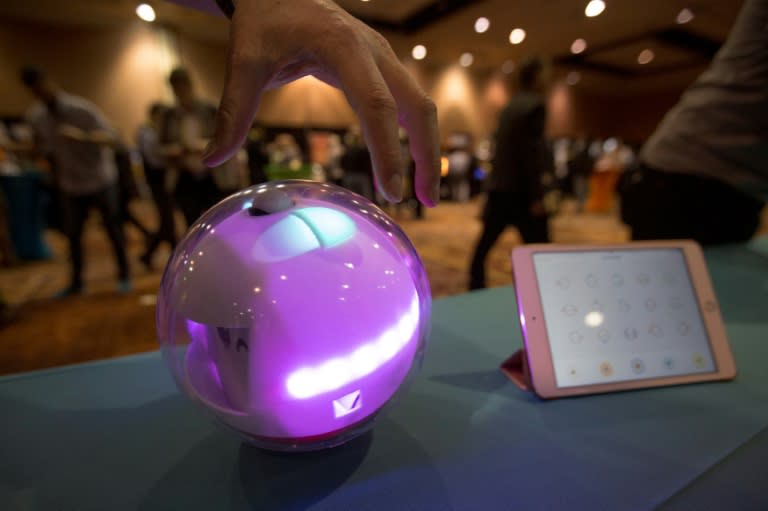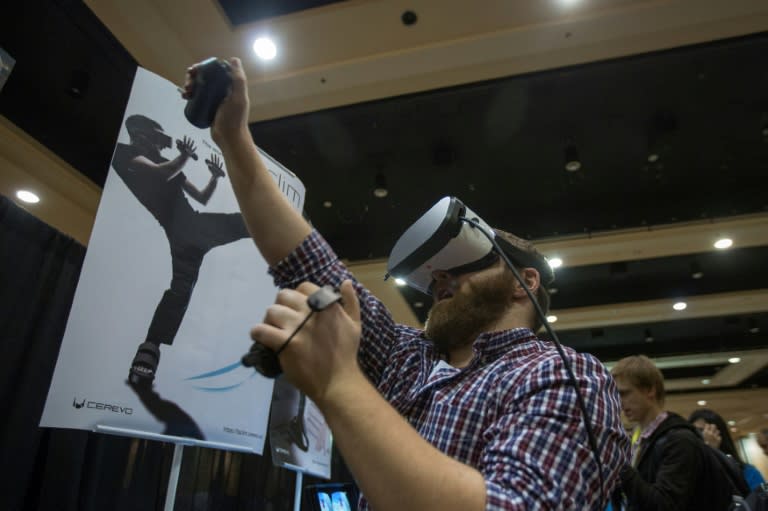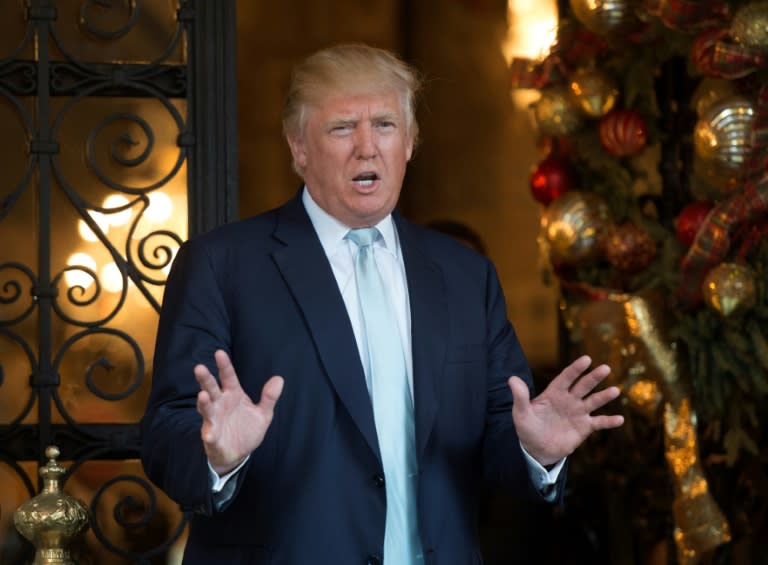Tech sector outlook dampened by political uncertainty
As tech industry leaders gather for an annual extravaganza showcasing hot new products, political uncertainty is casting a cloud over the sector. The election of Donald Trump and the Brexit referendum are among the factors weighing on the outlook. And a strong US dollar may cut into spending for many consumers around the world. With the Consumer Electronics Show kicking off this week in Las Vegas, the organizers are predicting that industry revenue would shrink for the fourth consecutive year. Consumer Technology Association senior director of market research Steve Koenig revealed the forecast Tuesday, predicting the amount of money people around the world spend on smartphones and other gadgets this year would tally $929 billion as compared to $950 billion in 2016. Koenig said the "underpinning" of the global forecast was "uncertainty with the election of Trump and with Brexit." "This air of uncertainty certainly is going to impact discretionary spending of consumers; business investment, and investment by governments," Koenig contended. Nearly half of the money spent on consumer technology will be for smartphones, which were forecast to account for 47 percent of spending on devices. "Mobility really does make the world go around," Koenig said during a CTA presentation ahead of the official opening of the show Thursday. "The smartphone is the center of the consumer technology universe." - 'Magnificent Seven' - Smartphones, tablets, desktop computers, laptops, televisions, cameras, and smartwatches made up a set of categories expected to account for some 81 percent, or $754 billion, in consumer electronics industry revenue this year. This is the first time smartwatches have made it into what Koenig called the "Magnificent Seven" revenue generating products in the industry. "We are seeing a lot of traction in smart watches," Koenig said. "Wearable (computing devices) are generating lots of innovation that is fueling lots of growth." In one of the first events at the show, Chinese electronics giant Huawei announced the global launch its mid-range Honor 6x smartphone which includes dual-lens camera technology and is aimed at young consumers. The smartphone, which was launched in China last year, will be available in 13 new markets this month, including the United States, at a price of $249 to $299, the company announced at CES. Huawei has emerged as the world's third largest smartphone vendor but has had only limited success in the United States. Huawei, which has a declared goal of becoming the number one smartphone maker, faces a crowded market behind the top two sellers, competing against other Chinese firms such as Lenovo and Xiaomi and South Korea's LG, which have also slated announcements at the electronics show. - Hitting the road - Fiat-Chrysler, meanwhile, used CES to unveil a Portal concept car designed for Millennials: an electric-powered minivan with modular components that can be adapted for autonomous driving. Inside a boxy exterior, the vehicle has an adaptable, modular "third space" that can be modified for passengers or cargo. The company said it can be used in "semi-autonomous operation," where a driver has the option to turn control over to the vehicle under certain highway driving situations. The Portal uses an array of sensors to monitor conditions that can assist drivers and is designed to allow upgrades for more self-driving capabilities. FCA's Tim Kuniskis said the concept was backed by "significant research on the millennial generation." "Millennials have clearly defined that they want a vehicle that will grow with them as they experience life changes," he added. The vehicle, for which production plans have not yet been announced, is designed as a family car that can be adapted for commercial use or car-sharing. Futuristic, self-driving cars are expected to be among the hot topics at CES as vehicle and component companies show off innovations heading for market. Industry newcomer Faraday Future was at CES to unveil its first production vehicle in a challenge to Tesla electric cars. The company, backed by Chinese billionaire Jia Yueting (YT Jia), announced that it would begin taking reservations for deliveries in 2018 with a $5,000 deposit for its FF91 model, which can go 378 miles (604 kilometers) between chargings. CES will officially open its doors on Thursday in the Las Vegas Convention Center after two days of press briefings in which companies compete to grab public attention. More than 3,800 exhibitors and at least 165,000 visitors were expected to take part in what was billed as the biggest CES event in the show's 50-year history. Anticipated hot topics included smart homes, robotics, virtual reality, and artificial-intelligence infused virtual assistants. CTA chief economist Shawn DuBravac said that after a year of "transition" in 2016 for things like virtual reality headsets and digital assistants, "I expect 2017 to be a year where many of these emerging tech categories find their footing and really take off."




